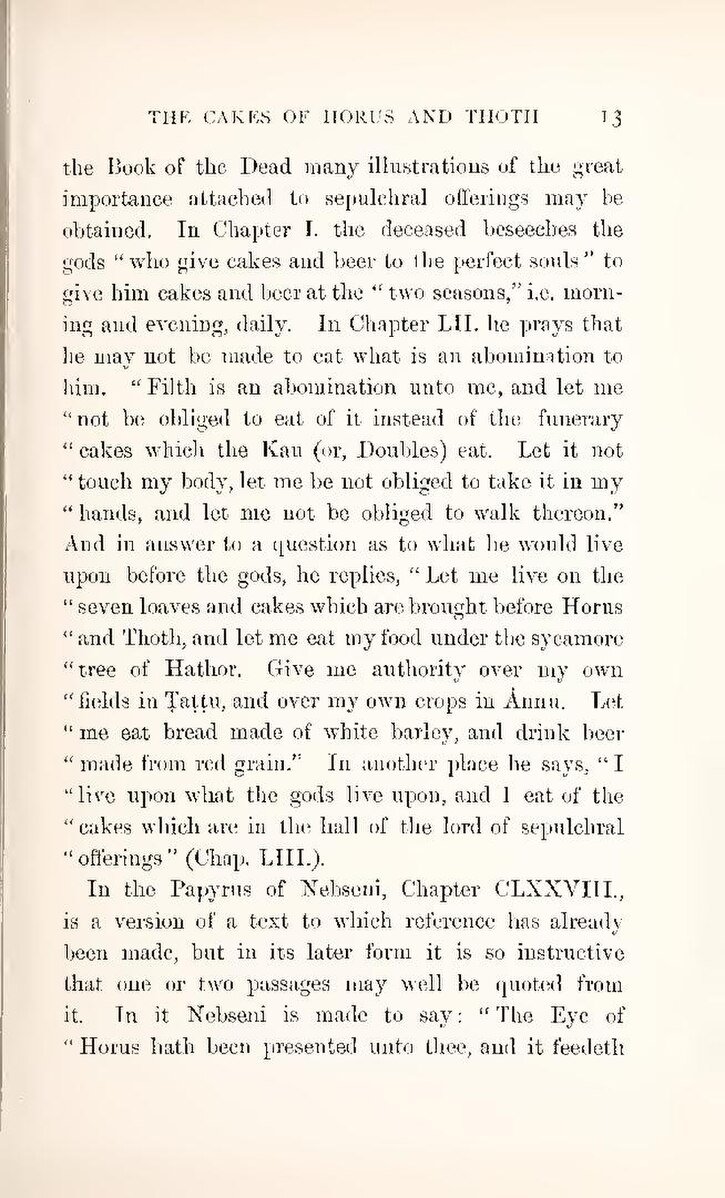the Book of the Dead many illustrations of the great importance attached to sepulchral offerings may he obtained. In Chapter I. the deceased beseeches the gods “who give cakes and beer to the perfect souls” to give him cakes and beer at the “two seasons,” i.e. morning and evening, daily. In Chapter LII. he prays that he may not be made to eat what is an abomination to him. “Filth is an abomination unto me, and let me not be obliged to eat of it instead of the funerary cakes which the Kau (or, Doubles) eat. Let it not touch my body, let me be not obliged to take it in my hands, and let me not be obliged to walk thereon.” And in answer to a question as to what he would live upon before the gods, he replies, “Let me live on the seven loaves and cakes which are brought before Horus and Thoth, and let me eat my food under the sycamore tree of Hathor. Give me authority over my own fields in Ṭaṭṭu, and over my own crops in Ȧnnu. Let me eat bread made of white barley, and drink beer made from red grain.” In another place he says, “I live upon what the gods live upon, and I eat of the cakes which are in the hall of the lord of sepulchral offerings” (Chap. LIII.).
In the Papyrus of Nebseni, Chapter CLXXVIII., is a version of a text to which reference has already been made, but in its later form it is so instructive that one or two passages may well be quoted from it. In it Nebseni is made to say: “The Eye of Horus hath been presented unto thee, and it feedeth
